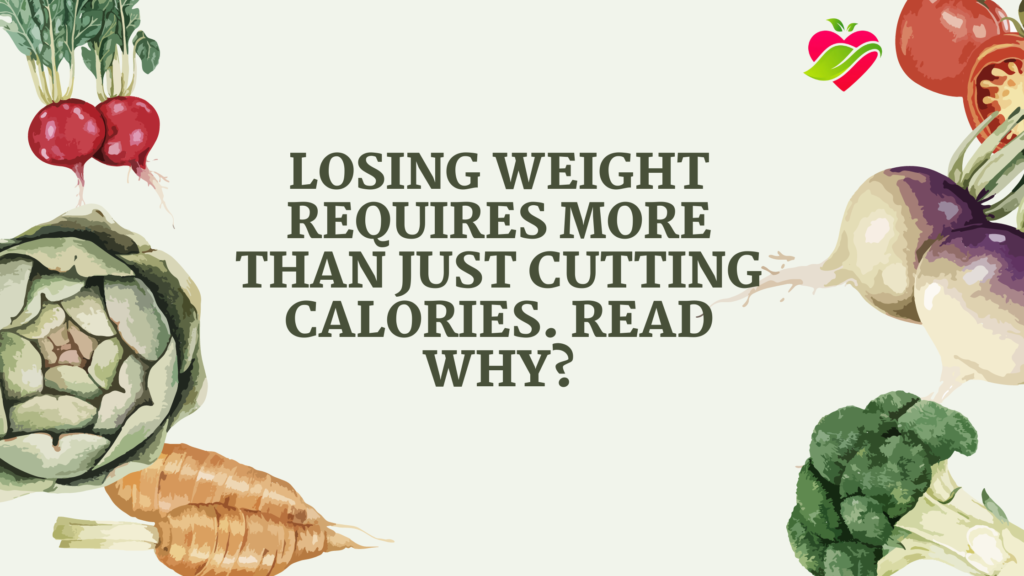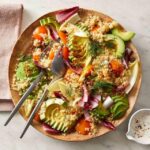You are mistaken if you think that cutting calories or following a calorie-deficit diet will help you lose weight.

Let’s first understand what calories really mean. A calorie is a unit, like a kilogram or kilometer, for measuring the energy consumed in the body. Have you ever compared one kilo of cotton with one kilo of iron bars? You may see that they both carry the same weight, but you have to put cotton in more number of quantity than iron. This is the same case with the calories.
Candies and a handful of nuts might have the same amount of calories. In fact, less candies are required to get the same number of calories as nuts, just like with iron bars. But a question arises here that the calories from nuts and candies are same? The answer is a big NO!
The calories you derive from the nuts are healthy and nutritious, but candies give you the same amount of unhealthy food or empty calories.
Avoiding empty calories is more important than reducing your calorie intake.
Empty calories come with added saturated fats, added sugars, and some processed oil. Eating candies and sodas while on a calorie deficit will help you lose weight, but do you feel healthy this way? Shedding kilos doesn’t mean that you are getting healthy; on the contrary, if you consume empty calories, you will feel low energy and have increased hunger.
Consuming more food that contains oil and sugar results in consuming fewer foods that are high in nutrients. In this way, empty calories increase the risk of inadequacy of several nutrients like vitamin A, vitamin C, vitamin E, and magnesium.
Most of the time, eating empty and unhealthy calories can result in weight gain, even if you consume a small amount of them. Some foods that are high in sugar content are cake, cookies, sweets, candies, beverages, and soda drinks.
While
Margarine, shortening, and other fats typically have a high-fat content. Although these foods provide energy, they contain very little or no vitamins, minerals, proteins, fiber, or essential fatty acids (Omega-3 and omega-6 fatty acids).
This is a safer way if you want to lose weight while being healthy. When you begin your quickest weight-loss journey, and your fat-loss diet, you see fast results and are super motivated. These results give you a false sense of what the process will look like.
There are some foods, like candy and soda, that are made up only of empty calories. Other foods, which can also be served in a version with few or no empty calories, contain some important nutrients along with some empty calories:
| Food Version with SOME Empty Calories | Food Version with FEW OR NO Empty Calories |
| Sweetened applesauce (contains added sugars) | Unsweetened applesauce |
| Regular ground beef (75% lean, contains solid fats) | Extra-lean ground beef (95% or more lean) |
| Fried chicken (which contains solid fats from frying and the skin) | Baked chicken breasts without skin |
| Sugar-sweetened cereals (contain added sugars) | Unsweetened cereals |
| Whole milk (contains solid fats) | Fat-free milk |
While consuming a small amount of empty-calorie food is acceptable, most people eat far more than is recommended. It is critical to restrict empty calories to a level that meets your needs for both calories and nutrients.
You can reduce your consumption by consuming fewer foods and drinks that are high in empty calories or by consuming less overall.
A calorie-deficit diet should augmented by a fit lifestyle
It’s quite normal to find a daily fluctuation in weight during your weight-loss journey. However, if your weight doesn’t change in ten days, then it means that your maintenance calories are more accurately represented by regular caloric intake on average. To lose almost a kilogram in two weeks, a daily calorie deficit of 500 is recommended.
Hence, eating in smaller amounts is not enough for the quickest weight-loss; instead, you must have to add nutrient-dense foods to keep your body filled with essentials. Also, it is important to be involved in some physical activities as well. Try to incorporate fitness and healthy eating as a continuous process. You have to make it a lifestyle rather than just a temporary and short-term phase. This lifestyle is more sustainable than creating a deficit diet.





